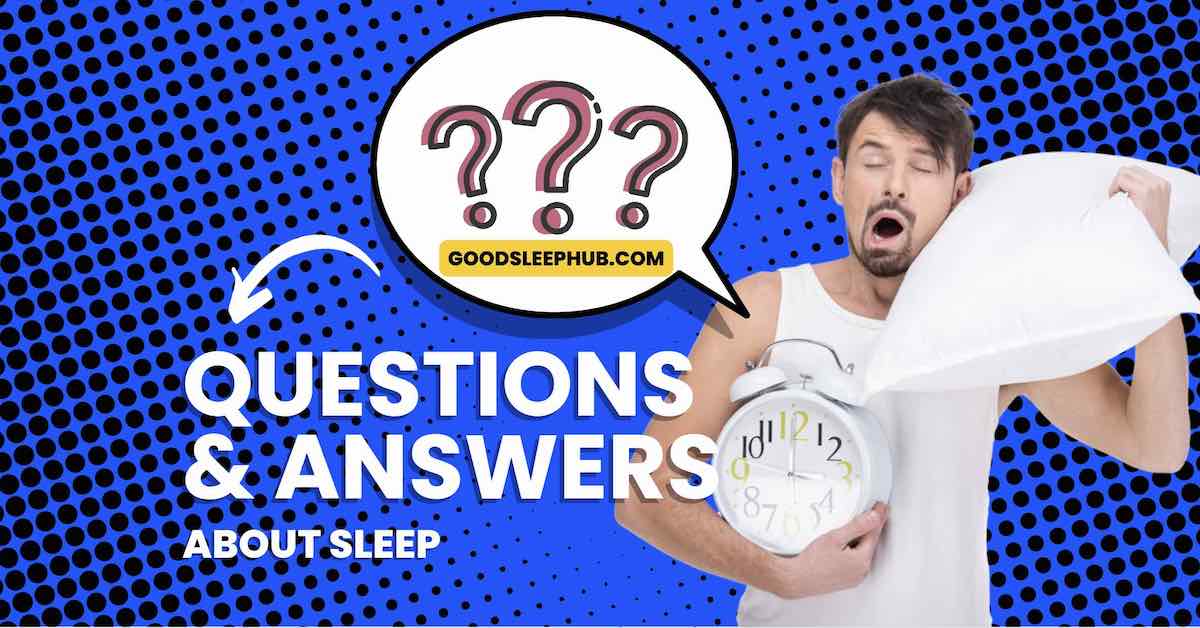
If you find yourself consistently sleeping more than the typical 7-9 hours per night and still feel tired upon waking, you might be experiencing hypersomnia, a condition characterized by excessive sleepiness. This might be due to a number of underlying issues such as sleep disorders, mental health conditions, or lifestyle-related causes. Understanding the root cause of excessive sleep is crucial in order to take appropriate action and improve your overall health and well-being.
Understanding Hypersomnia
Types of Hypersomnia
Hypersomnia can be divided into two categories: primary and secondary. Primary hypersomnia is sleepiness without an apparent cause, like narcolepsy, which is a neurological disorder that affects the control of sleep and wakefulness. Secondary hypersomnia is excessive sleepiness as a result of other medical conditions, such as sleep apnea or depression.
Common Causes
Various factors can contribute to sleeping too much, including:
- Medication side effects: Certain medicines can lead to drowsiness and increased sleep duration.
- Ideal sleep environment: Sometimes, a comfortable sleeping environment can promote longer sleep.
- Lack of quality sleep: If you have poor sleep quality, your body may attempt to compensate by increasing the quantity of sleep.
- Lifestyle choices: Consumption of alcohol or lack of physical activity can also impact your sleep patterns.
Sleep Disorders
Obstructive Sleep Apnea
Obstructive Sleep Apnea (OSA) is a common sleep disorder where breathing repeatedly stops and starts during sleep due to obstructed airways. This can lead to fragmented sleep and excessive daytime sleepiness as the brain and body are not experiencing restful sleep.
Narcolepsy
Narcolepsy is a neurological disorder that impairs the brain’s ability to regulate sleep-wake cycles. People with narcolepsy may experience excessive daytime sleepiness and sudden sleep attacks.
Restless Leg Syndrome
Restless Leg Syndrome (RLS) leads to uncomfortable sensations in the legs and an irresistible urge to move them, often causing difficulties in falling asleep or staying asleep and leading to excessive daytime sleepiness.
Mental Health and Sleep
Depression
Depression is strongly linked to changes in sleep patterns, including hypersomnia. The relationship is often bidirectional, with sleep issues potentially leading to depression and vice versa.
Anxiety and Stress
Excessive worry or stress can also interfere with normal sleep and lead to both insufficient and excessive sleep. Managing stress and anxiety can often alleviate sleep-related problems.
Physical Health Link to Sleep
Thyroid Issues
Both hypothyroidism and hyperthyroidism can interfere with sleep. An underactive thyroid can cause fatigue and hypersomnia, while an overactive thyroid can lead to insomnia.
Pain and Discomfort
Chronic pain can affect the quality of sleep, leading to long hours spent in bed without feeling rested, which can sometimes be mistaken for hypersomnia.
Lifestyle Factors Affecting Sleep
Diet and Exercise
What you eat and your physical activity levels can impact your sleep quality. A balanced diet and regular exercise can promote better sleep health, while poor diet choices and sedentary behavior can lead to excessive sleeping.
Substance Use
Alcohol, drugs, and even caffeine can disturb your sleep cycle, affecting both the quantity and quality of sleep and leading to varying sleep patterns, including oversleeping.
How to Identify if You’re Sleeping Too Much
You may be sleeping too much if you’re experiencing:
- Difficulty waking up in the morning
- Low energy levels during the day
- Memory or concentration problems
- Feelings of anxiety or depression
If these signs are persistent, it may be time to seek advice from a healthcare professional or a sleep specialist.
When to Seek Help
Tracking Sleep Patterns
Monitor your sleep patterns using a diary or a sleep tracking app. Note down how many hours you sleep, the quality of your sleep, and how you feel upon waking.
Top 5 Sleep Aid Supplements Recommended By GoodSleepHub.com
Hyland's Calms Forte' Sleep Aid Tablets, Natural Relief of Nervous Tension and Occasional Sleeplessness, 50 Count
20% Off (as of May 15, 2024 23:17 GMT +00:00 - More infoProduct prices and availability are accurate as of the date/time indicated and are subject to change. Any price and availability information displayed on [relevant Amazon Site(s), as applicable] at the time of purchase will apply to the purchase of this product.)Unisom SleepGels, Nighttime Sleep-aid, Diphenhydramine HCI 50 mg, 32 SoftGels
3% Off (as of May 16, 2024 12:05 GMT +00:00 - More infoProduct prices and availability are accurate as of the date/time indicated and are subject to change. Any price and availability information displayed on [relevant Amazon Site(s), as applicable] at the time of purchase will apply to the purchase of this product.)Unisom SleepTabs, Nighttime Sleep-aid, Doxylamine Succinate, 48 Tablets
7% Off (as of May 15, 2024 23:12 GMT +00:00 - More infoProduct prices and availability are accurate as of the date/time indicated and are subject to change. Any price and availability information displayed on [relevant Amazon Site(s), as applicable] at the time of purchase will apply to the purchase of this product.)Genexa Sleepology for Adults | Melatonin Free Sleep Calm Aid |Soothing Natural Vanilla & Lavender Flavor | Certified Organic & N...
(as of May 15, 2024 23:18 GMT +00:00 - More infoProduct prices and availability are accurate as of the date/time indicated and are subject to change. Any price and availability information displayed on [relevant Amazon Site(s), as applicable] at the time of purchase will apply to the purchase of this product.)ZzzQuil, Nighttime Sleep Aid LiquiCaps, 25 mg Diphenhydramine HCl, No.1 Sleep-Aid Brand, Non-Habit Forming, Fall Asleep Fast, 72...
22% Off (as of May 15, 2024 23:18 GMT +00:00 - More infoProduct prices and availability are accurate as of the date/time indicated and are subject to change. Any price and availability information displayed on [relevant Amazon Site(s), as applicable] at the time of purchase will apply to the purchase of this product.)Medical Evaluation
If oversleeping is interfering with your daily life, a medical evaluation may be necessary. Your doctor might recommend a sleep study to assess for sleep disorders or other tests to rule out other health issues.
Treating Excessive Sleepiness
Lifestyle Changes
Adopting a healthier lifestyle can greatly improve sleep habits. This includes regular physical activity, a balanced diet, and establishing a regular sleep routine.
Cognitive-Behavioral Therapy (CBT)
CBT can help address the mental health aspects of sleep disorders, such as changing negative thoughts and behaviors related to sleep.
Medication
In some cases, medication may be prescribed to help regulate sleep cycles or to treat the underlying condition causing hypersomnia.
Practical Tips for Better Sleep Hygiene
Improving your sleep hygiene can help you achieve better sleep quality:
- Keep a consistent sleep schedule by going to bed and waking up at the same time every day.
- Maintain a relaxing bedtime routine to prepare your body for sleep.
- Make your bedroom a comfortable, dark, quiet, and cool environment.
- Limit exposure to screens before bedtime, as the blue light can interfere with the production of melatonin, the sleep hormone.
- Avoid heavy meals, caffeine, and alcohol before bedtime.
Finishing Thoughts
Understanding why you might be sleeping too much is the first step towards improving your sleep health. It’s important to pay attention to not just the quantity, but also the quality of your sleep. Maintaining a healthy lifestyle, managing stress, and seeking medical advice when necessary can all contribute to better sleep patterns. Remember that everyone’s sleep needs are different; it’s about finding the right balance that allows you to wake up feeling refreshed and ready to tackle the day. If you’re concerned about how much you’re sleeping, never hesitate to reach out to a professional for help. Sweet dreams!








